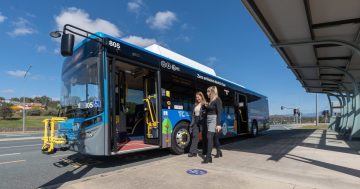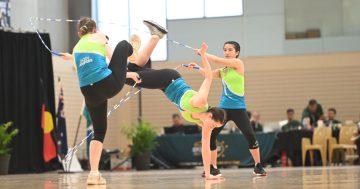Superfast broadband connects ACT kids to the future of learning in link-up with Japan
The National Broadband Network has been formally switched on in the nation’s capital.
NBN fibre now covers more than 4,000 homes and businesses in Gungahlin and Harrison in Canberra’s northern suburbs.
Construction has also commenced or is complete for around 20,000 premises in the ACT, in areas including Civic, Palmerston and Amaroo with the entire Canberra rollout due to be completed in 2015.
Seven internet service providers are ready to sign up families and business people to the NBN, with prices and packages comparable to most people’s internet plans but offering faster speeds and far greater capacity. They are: Telstra, iiNet, iPrimus, TransACT, Westnet, Internode and DevotedNBN.
“This is an exciting day for Canberrans,” NBN Co CEO Mike Quigley said. “Fast, reliable and affordable broadband is the first step to improving the way people in the ACT live and work and make better use of online health, education, business and entertainment.”
“For instance, it enables people to work from home as they would from the office; get the whole family online at once; access a high-definition doctor’s consultation; and stream TV without stuttering and buffering.”
“I encourage people who can make the switch to do it early so they can be among the first in the country to enjoy the benefits of superfast broadband.”
From pen pals to broadband buddies
Canberra’s connection to the network was marked this morning with a ceremony at Gungahlin Library and a demonstration of how the NBN can enhance the way children learn.
Eager pupils from Harrison School in Gungahlin participated in the first live NBN-enabled Japanese lesson and cultural exchange.
Students from Chitose Senior High School in Hokkaido, Japan beamed into the Gungahlin Digital Hub via the NBN. Children from the two schools saw each other for the first time over the fibre broadband connection.
The students taught each other words in Japanese and English and entertained one another with performances of “Waltzing Matilda” and Japanese folk song “Okina Kuri Kino Shitade” (“Under the Chestnut Tree”).
Director of the Asia ConneXions Project at the University of New England*, Dr Myung-sook Auh, said: “The NBN represents a wonderful opportunity for the next generation of children and students to connect with Australia’s neighbours as we turn our focus to our role in the Asian century.”
Local teacher, Daniel Manestar from The Harrison School, believes the NBN will enable students to benefit from more engaging and immersive learning experiences in the classrooms and the home.
“By using a medium that they understand and enjoy, students are not only stimulated, they are developing the skills necessary for the 21stcentury workforce and which will enhance our connections with the region,” Mr Manestar said.
Courtesy of NBNCO







